Monthly Topic Briefs
Updates on current issues and projects.

California’s Bottle Bill has been one of the most successful and cost-effective recycling and litter-reduction programs in the United States, targeting aluminum, glass, plastic, and bimetal containers.

Single-use foodware items, such as plastic and paper cups, plates, and utensils, have a short lifespan but a long-lasting negative impact on human health and the environment. Additionally, most of these single-use foodware items are neither readily recyclable nor compostable, and contaminate recycling and composting programs.
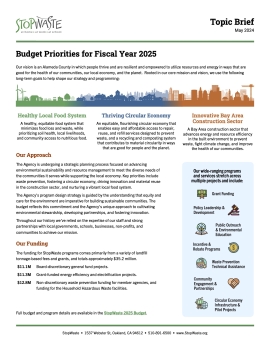
This provides an overview of the StopWaste Budget for FY 2025. It outlines the agency's strategic priorities and funding allocation for the coming year, which focuses on advancing environmental sustainability, fostering a circular economy, driving innovation in construction, and nurturing a local food system through various programs, partnerships, and community engagement.

Happy Earth Month! Whether you’re interested in learning how to get started with worm composting, how to electrify your home, reduce wasted food, or grow your own food, there’s a way to celebrate for everyone!

Spring is the time of fresh beginnings! With the seasonal shift, we are often inspired to clean and declutter our homes. Here are a few tips for a healthier home and planet.
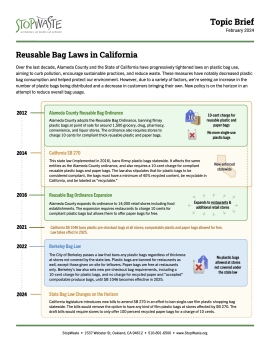
Over the last decade, Alameda County and the State of California have progressively tightened laws on plastic bag use, aiming to curb pollution, encourage sustainable practices, and reduce waste. These measures have notably decreased plastic bag consumption and helped protect our environment.
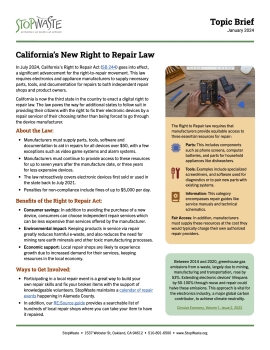
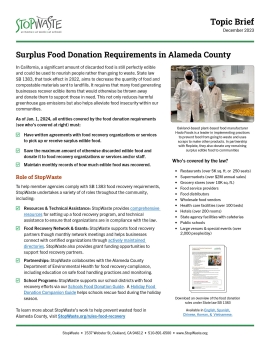
In California, a significant amount of discarded food is still perfectly edible and could be used to nourish people rather than going to waste. State law SB 1383, that took effect in 2022, aims to decrease the quantity of food and compostable materials sent to landfills.
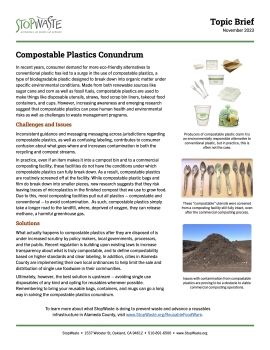
In recent years, consumer demand for more eco-friendly alternatives to conventional plastic has led to a surge in the use of compostable plastics, a type of biodegradable plastic designed to break down into organic matter under specific environmental conditions.
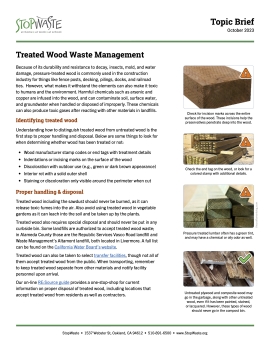
Because of its durability and resistance to decay, insects, mold, and water damage, pressure-treated wood is commonly used in the construction industry for things like fence posts, decking, pilings, docks, and railroad ties. However, what makes it withstand the elements can also make it toxic to humans and the environment.
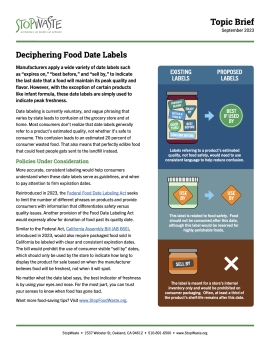
Manufacturers apply a wide variety of date labels such as “expires on,” “best before,” and “sell by,” to indicate the last date that a food will maintain its peak quality and flavor. However, with the exception of certain products like infant formula, these date labels are simply used to indicate peak freshness.
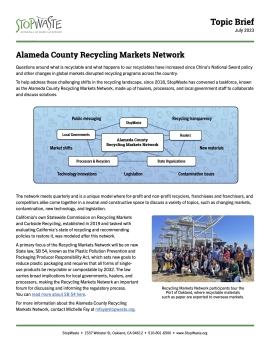
Questions around what is recyclable and what happens to our recyclables have increased since China’s National Sword policy and other changes in global markets disrupted recycling programs across the country.